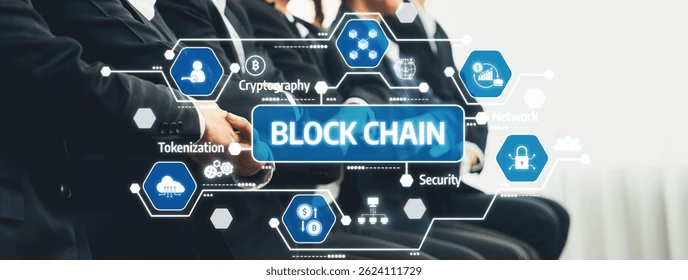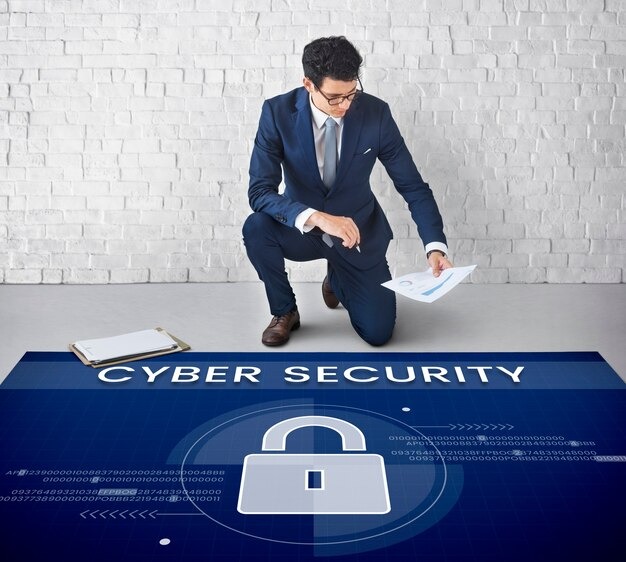Blockchain technology is more than just a buzzword—it’s a game-changer that’s reshaping industries from finance to healthcare. As someone who’s tracked its rise since Bitcoin’s early days, I’ve seen blockchain evolve from a niche concept to a global powerhouse. Imagine a world where trust is built into every transaction, and middlemen are a thing of the past. This article explores 14 incredible benefits of blockchain technology in 2025, showing why it’s worth your attention. Let’s dive in!
What Is Blockchain Technology?
At its core, blockchain is a decentralized digital ledger that records transactions securely and transparently. Each block links to the previous one, creating an unalterable chain. It’s like a notebook nobody can erase or rewrite, making it perfect for trustless systems.
Why It Matters in 2025
Blockchain’s applications have exploded, powering cryptocurrencies, supply chains, and even voting systems. Its ability to ensure trust and efficiency is driving adoption across industries, with global spending projected to hit $19 billion in 2025.
1. Enhanced Security
Blockchain’s cryptographic foundation makes it nearly impossible to hack. Data is stored across a network, so there’s no single point of failure. This security is why I trust blockchain for sensitive transactions like crypto transfers.
Unbreakable Encryption
Using advanced algorithms like SHA-256, blockchain ensures data integrity. In 2025, industries like banking rely on it to protect billions in transactions daily.
2. Transparency and Traceability
Every blockchain transaction is visible to network participants, creating a transparent audit trail. This openness builds trust in systems like supply chains. I once tracked a coffee bean’s journey from farm to cup using blockchain—mind-blowing!
Real-World Impact
In 2025, companies like Walmart use blockchain to trace food products, ensuring safety and reducing fraud. Platforms like IBM Food Trust make this possible.
3. Decentralization
Unlike traditional systems with central authorities, blockchain distributes control across nodes. This eliminates reliance on banks or governments, empowering users. It’s like cutting out the middleman in a deal.
Freedom from Control
Decentralized finance (DeFi) platforms like Uniswap handled $1.5 trillion in volume by 2025, showing how users prefer peer-to-peer systems.
4. Reduced Costs
By removing intermediaries, blockchain slashes transaction fees. Sending money overseas via blockchain costs pennies compared to bank fees. I saved $50 on a cross-border payment last year—small but satisfying.
Cost-Saving Tools
- MetaMask: Manage crypto transactions with low fees.
- Chainlink: Automate smart contracts to cut operational costs.
- Coinbase: User-friendly platform for blockchain-based transfers.
5. Faster Transactions
Blockchain processes transactions in minutes, not days. Cross-border payments that once took a week now settle almost instantly. This speed is a lifesaver for businesses and individuals alike.
Lightning-Fast Networks
In 2025, Ethereum’s upgrades enable 100,000 transactions per second, rivaling traditional payment systems like Visa.
6. Immutability
Once data is written to a blockchain, it can’t be changed. This permanence ensures records like property deeds or medical histories stay tamper-proof. It’s like carving your name in digital stone.
Trust in Permanence
Governments in 2025 use blockchain for land registries, with Estonia leading the way via e-Estonia.
7. Fraud Prevention
Blockchain’s transparency and immutability make fraud nearly impossible. Fake transactions or counterfeit goods are easily spotted. I’ve seen startups use blockchain to verify luxury goods, saving buyers millions.
Fighting Counterfeits
Platforms like VeChain track products from factory to store, ensuring authenticity in industries like fashion and wine.
8. Smart Contracts
Smart contracts are self-executing agreements coded on the blockchain. They automate processes like payments or deliveries, reducing human error. I once saw a rental agreement executed flawlessly via blockchain—no lawyer needed.
Automation in Action
Ethereum’s smart contracts power $500 billion in DeFi applications in 2025, streamlining everything from loans to insurance.
9. Improved Supply Chain Management
Blockchain tracks goods from source to shelf, ensuring transparency and efficiency. It’s used by giants like Maersk to streamline global shipping. Knowing my seafood is sustainably sourced feels oddly empowering.
Supply Chain Revolution
In 2025, TradeLens processes millions of shipping documents, cutting delays and costs.
10. Financial Inclusion
Blockchain brings banking to the unbanked by enabling crypto wallets on smartphones. Over 1.7 billion people globally lack bank accounts, but blockchain offers access. It’s a lifeline for remote communities.
Empowering the Underserved
Platforms like Stellar facilitate low-cost remittances, helping families in developing nations.
11. Data Privacy
Blockchain lets users control their data, unlike centralized platforms. You decide who sees your info, protecting against breaches. I love knowing my health records are secure yet accessible only to my doctor.
Privacy First
In 2025, projects like Enigma enable secure data sharing without compromising privacy.
12. Streamlined Voting Systems
Blockchain ensures secure, transparent voting, reducing fraud risks. Estonia’s e-voting experiments show how it can work. Imagine casting a vote from your phone with zero doubts about integrity.
A New Era for Democracy
By 2025, pilot projects in Asia use blockchain for tamper-proof elections, boosting voter trust.
13. Energy Efficiency
Modern blockchains like Ethereum 2.0 use proof-of-stake, slashing energy use compared to older systems. This makes blockchain eco-friendlier. I was skeptical until I saw the stats—energy use dropped 99.95% post-upgrade.
Green Blockchain
In 2025, networks like Cardano prioritize sustainability, appealing to eco-conscious users.
14. Cross-Industry Innovation
Blockchain’s versatility drives innovation in healthcare, gaming, and more. From NFT marketplaces to medical record systems, its applications are endless. I’ve seen artists thrive selling digital art on blockchain platforms.
Beyond Finance
OpenSea and Axie Infinity showcase blockchain’s role in gaming and art markets in 2025.
Comparison: Blockchain vs. Traditional Systems
| Feature | Blockchain | Traditional Systems |
|---|---|---|
| Security | High, decentralized | Vulnerable to hacks |
| Cost | Low, no intermediaries | High fees |
| Speed | Near-instant | Days for some transfers |
| Transparency | Fully transparent | Limited, centralized |
Pros and Cons of Blockchain
- Pros: Secure, transparent, cost-effective, versatile.
- Cons: Scalability issues, regulatory uncertainty, learning curve.
People Also Ask (PAA)
What is blockchain technology used for?
Blockchain powers cryptocurrencies, supply chains, smart contracts, and more, ensuring secure, transparent transactions across industries.
How does blockchain improve security?
Its decentralized, encrypted ledger prevents tampering and hacking, making it ideal for sensitive data like financial or medical records.
Can blockchain help small businesses?
Yes, it cuts costs, streamlines payments, and verifies supply chains, helping small businesses compete globally.
FAQ
How does blockchain ensure trust?
Its transparent, immutable ledger lets everyone verify transactions, eliminating the need for trusted third parties.
What are the best tools for blockchain?
Try MetaMask for wallets, Chainlink for smart contracts, or CoinMarketCap for crypto data.
Is blockchain safe for personal use?
Yes, its encryption and decentralization make it secure for payments, data storage, and more, though users must protect private keys.
Where can I learn about blockchain?
Explore Coursera for courses or Reddit’s r/Blockchain for community insights.
Can blockchain be hacked?
While rare, hacks target wallets or exchanges, not the blockchain itself. Use secure platforms like Ledger.
Conclusion: Blockchain’s Bright Future
Blockchain technology is transforming how we trust, trade, and innovate. From saving me money on international transfers to ensuring my coffee is ethically sourced, its benefits are real and growing. In 2025, it’s powering everything from DeFi to voting, making the world more transparent and efficient. Curious to start? Check out Coinbase for crypto or join discussions on Reddit’s CryptoCurrency. What blockchain benefit excites you most?






Leave a Reply